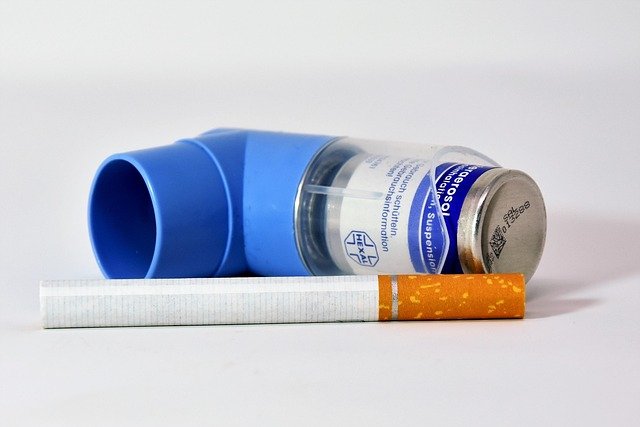Understand the Benefits of Quitting Smoking
Quitting smoking is a profound decision you can make for your health. The benefits are numerous, and they begin to show up almost immediately. Within 20 minutes, your heart rate will drop, and your carbon monoxide levels in your blood will return to normal within 12 hours. Over time, your risk of heart disease, lung cancer, and other smoking-related illnesses will also be significantly reduced. Beyond physical health, quitting smoking can also improve your mental health. Many smokers report that quitting has reduced anxiety and increased ease of mind.

Quitting smoking represents a profound turning point in anyone’s health journey. While the addiction to nicotine makes stopping difficult, the health benefits begin almost immediately after your last cigarette. This comprehensive guide explores the numerous advantages of quitting smoking, from short-term improvements to long-term health gains, and provides insights into effective cessation strategies and support options.
How to Quit Smoking Successfully
The journey to quit smoking begins with understanding that success often requires multiple attempts. Research shows that smokers typically make 8-10 attempts before achieving long-term abstinence. Creating a personalized quit plan is essential - identify your smoking triggers, set a specific quit date, and determine whether you’ll quit cold turkey or gradually reduce consumption. Behavioral strategies like avoiding trigger situations, practicing new coping mechanisms for stress, and enlisting support from friends and family significantly improve success rates. Many people find that combining behavioral techniques with pharmacological support offers the best chance of quitting permanently.
Stop Smoking Products That Can Help
Various evidence-based products can ease the transition to a smoke-free life. Nicotine replacement therapies (NRTs) like patches, gum, lozenges, inhalers, and nasal sprays help manage withdrawal symptoms by providing controlled amounts of nicotine without the harmful chemicals in cigarettes. Prescription medications such as bupropion (Zyban) and varenicline (Chantix) work on brain receptors to reduce cravings and decrease the pleasure associated with smoking. Digital tools have also emerged as valuable resources, with smoking cessation apps offering tracking features, personalized support, and community connections. Research indicates that using a combination of medications and behavioral support can double or even triple your chances of quitting successfully.
Stop Smoking: Immediate Health Benefits
The body begins healing remarkably quickly after quitting smoking. Within just 20 minutes, your heart rate and blood pressure drop. After 12 hours, carbon monoxide levels in your bloodstream return to normal, increasing oxygen delivery throughout your body. Within 2-3 days, nerve endings begin regenerating, improving your sense of taste and smell. The first week brings improved lung function, making breathing easier and reducing coughing. After one month, your lung function increases by up to 30%, and circulation improves significantly. These rapid improvements provide tangible evidence of your body’s resilience and can serve as powerful motivation during challenging moments in your quit journey.
30 Days Quit Smoking: What to Expect
The first month after quitting represents a critical period in your recovery from nicotine addiction. During the initial week, physical withdrawal symptoms peak, including irritability, anxiety, headaches, and intense cravings. By weeks two and three, these symptoms typically begin subsiding as your body adjusts to functioning without nicotine. Around the three-week mark, many ex-smokers report a significant reduction in cravings and improved mood stability. By day 30, your lung function has notably improved, and your risk of coronary heart disease has already begun decreasing. Many people also notice increased energy levels, improved circulation, and better sleep quality. While challenges remain, reaching this milestone significantly increases your chances of long-term success.
Things to Know When Quitting Smoking
Understanding the psychological aspects of quitting is just as important as managing physical withdrawal. Smoking often becomes intertwined with daily routines and emotional responses, creating powerful psychological dependencies. Prepare for temporary cognitive challenges like difficulty concentrating and mood fluctuations, which typically improve within a few weeks. Weight gain concerns are common, but the average gain is only about 5-10 pounds, and can be managed through healthy eating and physical activity. Recognize that slip-ups don’t equal failure—they’re learning opportunities. Developing new habits to replace smoking rituals is crucial for long-term success, whether it’s taking short walks, practicing deep breathing, or enjoying a new hobby.
Comparing Stop Smoking Products and Their Effectiveness
When choosing smoking cessation aids, understanding their effectiveness and suitability for your specific needs is crucial. Different products work better for different people based on smoking habits, previous quit attempts, and personal preferences.
| Product Type | Effectiveness Rate | Cost Range | Best For |
|---|---|---|---|
| Nicotine Patches | 20-25% | $20-$40 per week | Heavy smokers needing consistent nicotine delivery |
| Nicotine Gum | 15-20% | $30-$50 per week | Those needing quick-acting relief for sudden cravings |
| Prescription Varenicline | 33-35% | $100-$500 per month | Smokers with previous failed quit attempts |
| Bupropion | 20-25% | $75-$150 per month | Those concerned about weight gain while quitting |
| Combination NRT | 25-30% | $50-$90 per week | Heavy smokers with significant withdrawal symptoms |
Prices, rates, or cost estimates mentioned in this article are based on the latest available information but may change over time. Independent research is advised before making financial decisions.
The long-term benefits of quitting smoking far outweigh the temporary discomfort of withdrawal. Within one year of quitting, your risk of heart disease drops by half. After 5-10 years, your risk of stroke decreases to that of a non-smoker. After 10 years, your lung cancer risk is cut in half compared to continuing smokers. By 15-20 years smoke-free, your risk of heart disease approaches that of someone who has never smoked. Beyond physical health, many ex-smokers report improved mental wellbeing, higher self-esteem, and a sense of freedom from addiction.
Quitting smoking represents one of the most significant health improvements you can make. While the journey may be challenging, the benefits begin almost immediately and continue accumulating for years. With proper preparation, support, and persistence, freedom from smoking is achievable. Each quit attempt builds valuable skills and insights, bringing you closer to permanent success and a healthier future.
This article is for informational purposes only and should not be considered medical advice. Please consult a qualified healthcare professional for personalized guidance and treatment.




